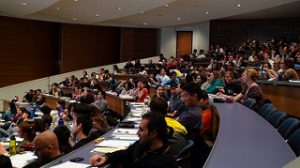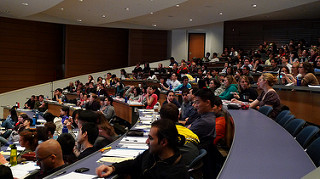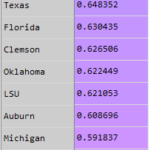 In my quest to become a data scientist, I have embarked on a series of educational journeys, which have included both formal, in-school, educational forums and self-learning, self-paced MOOCS (massive open online courses). Let me start at the beginning of my path to getting an education and training in data science.
In my quest to become a data scientist, I have embarked on a series of educational journeys, which have included both formal, in-school, educational forums and self-learning, self-paced MOOCS (massive open online courses). Let me start at the beginning of my path to getting an education and training in data science.
Business Intelligence Analytics Advanced Diploma Program
I previously did work as a process engineer for an oil refinery, then switched careers and became a physician, a psychiatrist. After many years seeing patients, teaching medical students, and performing clinical research, I decided it was time to switch to yet another career.
As I was helping my son to pick out courses for his upcoming enrollment at a local community college, I stumbled upon a Business Intelligence Analytics Program at that same community college. As I read through the program description and courses, it looked very interesting to me at the time, and decided to enroll in that program, to learn about business intelligence analytics.
As I went through the program for the first term, it occurred to me that I was more interested in machine learning and predictive analytics, rather than just looking at historical data and presenting the descriptive statistics and what happened last quarter. Although this program gave me a good overview of databases, I found the program lacking in many ways, as the school did not put in the resources to link the students with coop jobs with the local industry in data analytics. So when I was unable to find a coop job in the summer after the first term was completed, I decided that I would need to augment my education, rather than just rely on the program at the school and let the summer go to waste.
MOOCS, Machine Learning, R, and Python
Over the summer break, since I could not find a coop job in data analytics, I decided to look into online learning, also called MOOCS (massive open online courses). I first started with a machine learning MOOC, which was quite informative and hands-on, and became skilled at using R when utilizing various models to apply regression, classification, and clustering to different datasets. From my first success in MOOCS with machine learning and R, I decided to take more courses in computer science and programming.
I particularly liked the MOOC where I was introduced to Python programming. Once I got introduced to Python, I was hooked, as I saw the versatility of Python for web scraping, data parsing, database, analysis, and visualization. Within just 4 weeks of daily Python immersion on MOOCS and solving problems on hackerrank.com, I became good enough to call myself a Python programmer.
It was also at that same time that it dawned on me that I had the requisite skills needed as a computer science student to apply to data science master’s programs. The idea of applying to master’s programs was now a reality, since I had accumulated sufficient skills in database, machine learning, and coding, which was required for many of the master’s programs in data science. Also, when I looked at the various job listings for data scientists, almost all of the companies required either a master’s degree, or 2 to 3 years of experience as a data scientist.
That cemented it for me to look into applying to grad school. Fortunately, I did quite well at the community college with the various database courses I took there, and was able to obtain excellent faculty references, which is one of the main requirements for applying to the master’s programs.
MS Analytics Program
As I mentioned in a previous post, I interviewed at an MS Analytics program, but it did not have computer science and coding as part of its curriculum, and was too focused on statistics. Given their total disregard for coding and computer science, I decided against that program (and that decision was mutual, as they did not offer me a position, citing stiff competition). But that statistics professor was way off base, and obviously did not know the definition of a data scientist, and confused them for statisticians. But data scientists are not only experts at statistics…they are also experts at computer science and coding, in addition to having domain expertise.
This being my first exposure to graduate programs in data science, I began to question their ROI (return on investment), especially when I already have two university degrees, one of which is a technical degree in chemical engineering. I was wondering if certificate and diploma programs in data science may be the better option for me, especially with my industry experience and engineering degree. And of course, I could take more MOOCS, as that is how I learned machine learning and how to code! But fortunately, my next interview with a graduate program really impressed me, and I impressed them (how do I know this…read on!).
MSc in Computing and Data Analytics
Good news! I was accepted into a Master of Science Program in Computing and Data Analytics. This program is a well-balanced mix of computer science, statistics, and business intelligence. I had to pass a programming test to get in, as they only accept data science grad students who can actually code…imagine that! I’m very glad to be in this program, and looking forward to starting grad school this Fall. For me, this program was the missing piece in my data science training. For me, I have to get a master’s degree in data science, given my other degrees and industry experience were not in the IT industry.
EMC Data Science Certifications
Even though I am slated to start grad school in a few weeks, I still decided to take the EMC Data Science Associate (EMCDSA) course, as many of the practicing data scientists have the EMCDSA certification. Once I obtain my EMCDSA this summer, I plan on continuing to the next level, and work on obtaining the EMC Data Science Specialist (EMCDSS) certification. The great thing about these are that they are also in MOOC format. Fortunately, I have a group to study these courses, and we meet in-person weekly to go over the material we learned during the week.
Summary
So that is my tour of data science educational programs. For me, getting the master’s degree in data science from a well-balanced program is key to my education and training as a data scientist. I don’t believe everyone needs to take my same path, but it is an example of how one person is getting training in this data science field which currently has no official standards for training. For me, the master’s degree will serve as my foundation, while the MOOCS and various data science certifications will augment and enhance my training and experience.
As a word of caution, if you are looking into a master’s program in data science, please pick programs that are well balanced in all the core areas of data science, including computer science (algorithms, coding), statistics, and business intelligence. Skip the ones that ignore computer science, and skip the ones that ignore statistics.
Good luck on your journey to becoming a data scientist, and please contact me should you have any questions.
photo credit: velkr0 classroom via photopin (license)








Thanks for sharing. That’s amazing experience, which encourages me the most.
Glad it was helpful…good luck with your studies!
Dr. Carlo,
I am 50, a 20 year old radiologist, who specializes in breast cancer imaging. I have dealt with death of my patients for years and now the death of my father and soon to be mother. I cannot nor do I ever want to return to the field of medicine. I have read your studies but at age 50 do not know if your tract is accomplishable at my age.
What would you recommend for me? I am not a salesperson and enjoy being busy and reimbursed based on my work ethic, knowledge not sales transactions. I need help soon and I would be absolutely grateful for an income of $100,000/yr if possible.
Dear Dr. Lisa,
I’m sorry for your losses. Regarding a career outside of clinical medicine, it is a very difficult road without formal training. The non-clinical jobs as a physician are already under stiff competition, so the best option for switching from clinical medicine to another career is to get formal training. I would advise you get a career coach to help you through the transition.